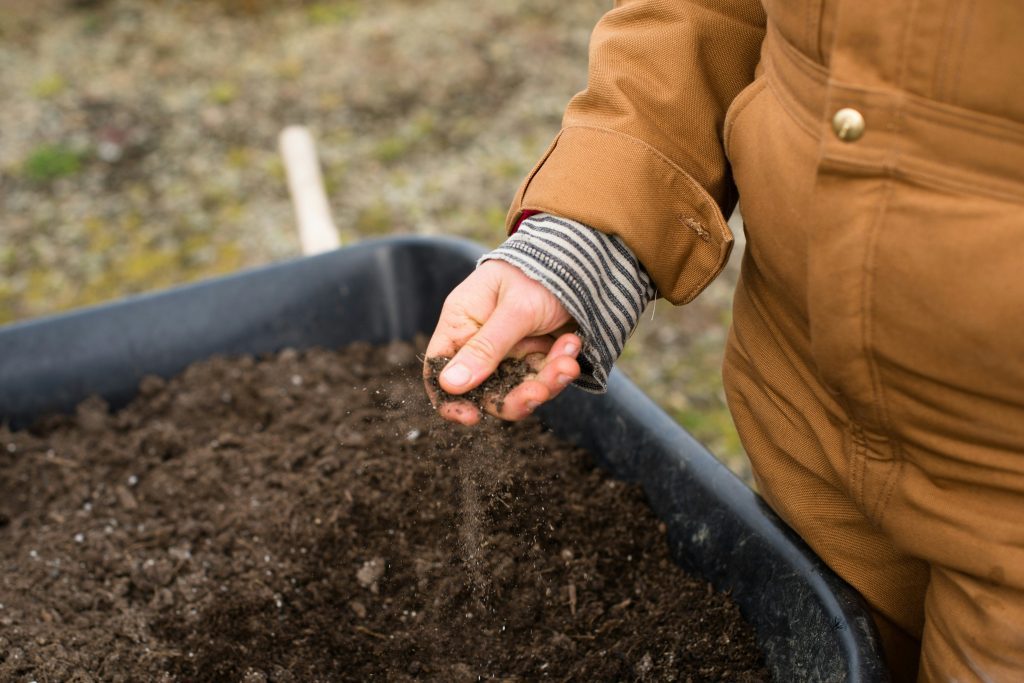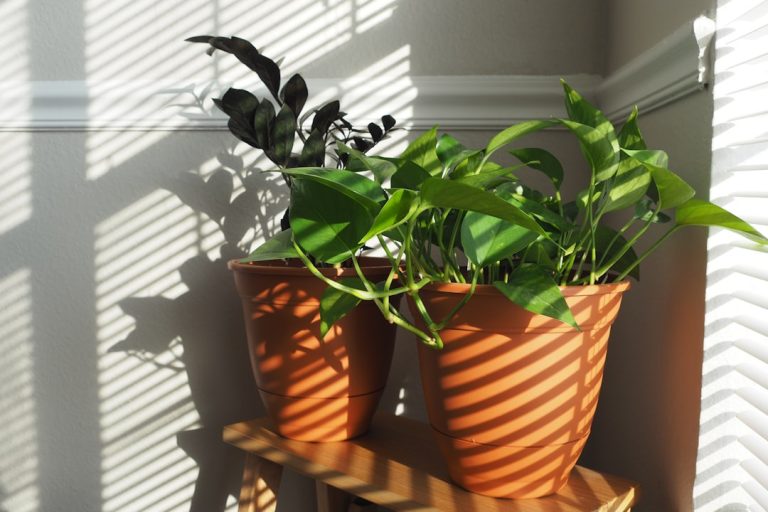In today’s world, waste management has become a pressing issue. The amount of waste generated by humans is increasing at an alarming rate, and this has significant consequences for the environment. Landfills are filling up quickly, and the decomposition of waste produces harmful greenhouse gases that contribute to climate change. It is clear that we need to find sustainable solutions to reduce waste and promote a greener future.
One such solution is composting. Composting is the process of breaking down organic materials, such as food scraps and yard waste, into nutrient-rich soil. This process not only reduces the amount of waste that ends up in landfills but also creates a valuable resource that can be used to improve soil health and promote plant growth. By composting, we can transform our waste into something beneficial for the environment.
Key Takeaways
- Composting is an important practice for a greener future, as it reduces waste and benefits the environment.
- To start composting, you need to know the basics, such as the right materials and methods for your lifestyle.
- Choosing the right composting method is crucial, as it can affect the success of your compost pile.
- Essential materials for a successful compost pile include brown and green materials, water, and air.
- Composting do’s and don’ts include avoiding meat and dairy products, adding enough water, and turning the pile regularly.
The Basics of Composting: What You Need to Know
Composting is a natural process that occurs when organic materials break down and decompose. This process is facilitated by microorganisms, such as bacteria and fungi, which feed on the organic matter and convert it into humus, a dark, crumbly substance that resembles soil. Composting has numerous benefits, both for the environment and for gardeners.
Firstly, composting reduces the amount of waste that ends up in landfills. Organic materials make up a significant portion of household waste, and when they decompose in landfills, they produce methane gas, a potent greenhouse gas that contributes to climate change. By composting these materials instead, we can significantly reduce our carbon footprint.
Secondly, composting creates nutrient-rich soil that can be used to improve soil health and promote plant growth. Compost is packed with essential nutrients, such as nitrogen, phosphorus, and potassium, which are vital for plant growth. When added to garden beds or used as a top dressing for lawns, compost can improve soil structure, retain moisture, and provide a steady release of nutrients to plants.
Choosing the Right Composting Method for Your Lifestyle
There are several different methods of composting, and choosing the right one for your lifestyle and living situation is essential. The most common methods include traditional composting, vermicomposting, and bokashi composting.
Traditional composting involves creating a pile or bin in your backyard and adding organic materials, such as food scraps and yard waste. This method requires regular turning and maintenance to ensure proper decomposition. Traditional composting is ideal for those with a large yard or garden space and who are willing to put in the effort to maintain the compost pile.
Vermicomposting, on the other hand, involves using worms to break down organic materials. This method is perfect for those with limited space, such as apartment dwellers or those without a backyard. Vermicomposting can be done indoors using a worm bin, and the worms will happily munch on your food scraps, producing nutrient-rich worm castings.
Bokashi composting is a fermentation process that involves using a special bokashi bran to break down organic materials. This method is ideal for those who want to compost all types of food waste, including meat and dairy products. Bokashi composting can be done indoors or outdoors and requires minimal maintenance.
Essential Materials for a Successful Compost Pile
| Essential Materials | Description |
|---|---|
| Brown Materials | High carbon materials such as dried leaves, straw, and shredded paper that provide structure and absorb moisture. |
| Green Materials | High nitrogen materials such as grass clippings, vegetable scraps, and coffee grounds that provide nutrients and help break down the compost pile. |
| Air | Airflow is necessary for the composting process to occur. Turning the pile regularly can help aerate it. |
| Water | Moisture is important for the composting process, but too much water can cause the pile to become anaerobic and produce unpleasant odors. |
| Microorganisms | Bacteria, fungi, and other microorganisms break down the organic matter in the compost pile. Adding finished compost or soil can introduce these microorganisms to the pile. |
To create a successful compost pile, you will need a few essential materials. These include organic matter, such as food scraps and yard waste, as well as carbon-rich materials like leaves or shredded paper. It is important to have a good balance between these two types of materials to ensure proper decomposition.
In addition to organic matter and carbon-rich materials, you will also need water and air. Moisture is essential for the decomposition process, so it is important to keep your compost pile moist but not waterlogged. Turning the compost pile regularly will help to introduce oxygen and promote decomposition.
When creating a compost pile, it is important to layer the materials properly. Start with a layer of carbon-rich materials, such as leaves or shredded paper, followed by a layer of organic matter. Repeat this layering process until you have used up all your materials. It is also a good idea to add a handful of soil or finished compost to introduce beneficial microorganisms to the pile.
Composting Do’s and Don’ts: Eco-Friendly Practices to Reduce Waste
Composting is an eco-friendly practice that can significantly reduce waste and promote sustainability. However, there are some do’s and don’ts to keep in mind when composting.
Do’s:
– Do compost fruit and vegetable scraps, coffee grounds, tea bags, eggshells, yard waste, and leaves.
– Do turn your compost pile regularly to introduce oxygen and promote decomposition.
– Do keep your compost pile moist but not waterlogged.
– Do add a handful of soil or finished compost to introduce beneficial microorganisms.
– Do use a compost bin or tumbler to contain your compost pile and prevent pests.
Don’ts:
– Don’t compost meat, dairy products, oily foods, or pet waste.
– Don’t add weeds or plants that have gone to seed, as they may spread in your garden.
– Don’t add diseased plants or plants treated with pesticides, as this may spread diseases or chemicals to your garden.
Troubleshooting Common Composting Problems

While composting is a relatively simple process, there are some common issues that can arise. Here are some troubleshooting tips for common composting problems:
Problem: Compost pile smells bad.
Solution: A smelly compost pile is often a sign of too much moisture or not enough oxygen. Turn the pile more frequently and add dry carbon-rich materials like leaves or shredded paper to absorb excess moisture.
Problem: Compost pile is not decomposing.
Solution: If your compost pile is not decomposing, it may be lacking nitrogen or moisture. Add more nitrogen-rich materials like grass clippings or kitchen scraps, and make sure the pile is moist but not waterlogged.
Problem: Compost pile attracts pests.
Solution: To prevent pests from being attracted to your compost pile, make sure to bury food scraps under a layer of carbon-rich materials. You can also use a compost bin or tumbler with a secure lid to keep pests out.
The Benefits of Composting for Your Garden and the Environment
Composting has numerous benefits for both your garden and the environment. By composting, you are reducing the amount of waste that ends up in landfills, which helps to reduce greenhouse gas emissions and combat climate change. Additionally, composting creates nutrient-rich soil that can improve soil health and promote plant growth.
Compost is packed with essential nutrients, such as nitrogen, phosphorus, and potassium, which are vital for plant growth. When added to garden beds or used as a top dressing for lawns, compost can improve soil structure, retain moisture, and provide a steady release of nutrients to plants. This can result in healthier plants with stronger root systems and increased resistance to pests and diseases.
Furthermore, composting helps to reduce the need for chemical fertilizers and pesticides. By using compost in your garden, you are providing plants with natural nutrients and beneficial microorganisms that can help suppress pests and diseases. This not only benefits your garden but also reduces the amount of harmful chemicals that end up in our waterways and ecosystems.
Creative Ways to Use Compost in Your Home and Garden
Compost can be used in a variety of creative ways in your home and garden. Here are some ideas:
– Use compost as a potting mix for indoor plants or seedlings.
– Mix compost with soil to create a nutrient-rich planting mix for your garden beds.
– Use compost as a top dressing for lawns to improve soil health and promote lush, green grass.
– Create compost tea by steeping compost in water and use it as a natural fertilizer for your plants.
– Use compost as mulch around trees, shrubs, and garden beds to retain moisture and suppress weeds.
– Create a compost pile specifically for vermicomposting and use the worm castings as a natural fertilizer for your plants.
How to Make Composting a Part of Your Daily Routine
Making composting a part of your daily routine is easier than you might think. Here are some tips to help you incorporate composting into your daily life:
– Set up a designated area in your kitchen for collecting food scraps. Use a small container or bin with a lid to prevent odors and pests.
– Empty your kitchen scraps into your compost pile or bin regularly. This will prevent odors and keep your kitchen clean.
– Make it a habit to turn your compost pile regularly. Set a reminder on your phone or calendar to ensure you don’t forget.
– Involve your family or housemates in the composting process. Assign tasks and make it a group effort.
– Educate yourself about the benefits of composting and share this knowledge with others. Encourage friends and family to start composting as well.
Transforming Your Waste into Gold for a Greener Future
Composting is a simple yet powerful way to reduce waste, promote sustainability, and make a positive impact on the environment. By transforming our waste into nutrient-rich soil, we can improve soil health, promote plant growth, and reduce our carbon footprint.
Whether you have a large backyard or live in an apartment, there is a composting method that can work for you. By following the basic principles of composting and incorporating it into your daily routine, you can make a significant difference in the fight against waste and climate change.
So why wait? Start composting today and join the movement towards a greener future. Together, we can transform our waste into gold and create a more sustainable world for future generations.
Looking for more eco-friendly tips? Check out this article on composting tips from Eco Friendly Home and Garden. Composting is a great way to reduce waste and create nutrient-rich soil for your garden. Whether you’re a beginner or an experienced composter, this article provides easy and effective tips to help you get started or improve your composting process. Learn about the right balance of green and brown materials, how to maintain proper moisture levels, and other helpful techniques. Start composting today and contribute to a more sustainable future.
FAQs
What is composting?
Composting is the process of breaking down organic matter, such as food scraps and yard waste, into a nutrient-rich soil amendment that can be used to improve soil health and plant growth.
Why should I compost?
Composting reduces the amount of organic waste that ends up in landfills, which helps to reduce greenhouse gas emissions. It also produces a valuable soil amendment that can improve soil health and plant growth.
What can I compost?
You can compost a wide variety of organic materials, including fruit and vegetable scraps, coffee grounds, eggshells, yard waste, and even some types of paper and cardboard.
What should I not compost?
You should not compost meat, dairy, or oily foods, as these can attract pests and create unpleasant odours. You should also avoid composting pet waste, as it can contain harmful pathogens.
How do I start composting?
To start composting, you will need a compost bin or pile, organic materials to compost, and a little bit of patience. You can purchase a compost bin or make your own using materials like wood pallets or chicken wire.
How do I maintain my compost pile?
To maintain your compost pile, you should aim for a balance of green (nitrogen-rich) and brown (carbon-rich) materials, keep the pile moist but not too wet, and turn the pile regularly to aerate it and speed up the composting process.
How long does it take to make compost?
The time it takes to make compost can vary depending on factors like the size of your pile, the materials you are composting, and the conditions in your compost bin or pile. In general, it can take anywhere from a few months to a year or more to produce finished compost.


